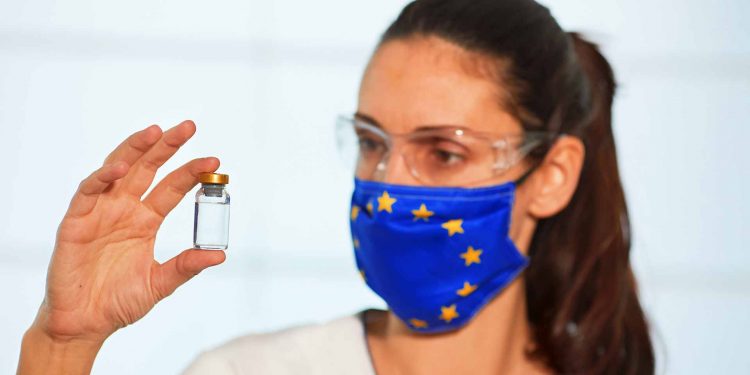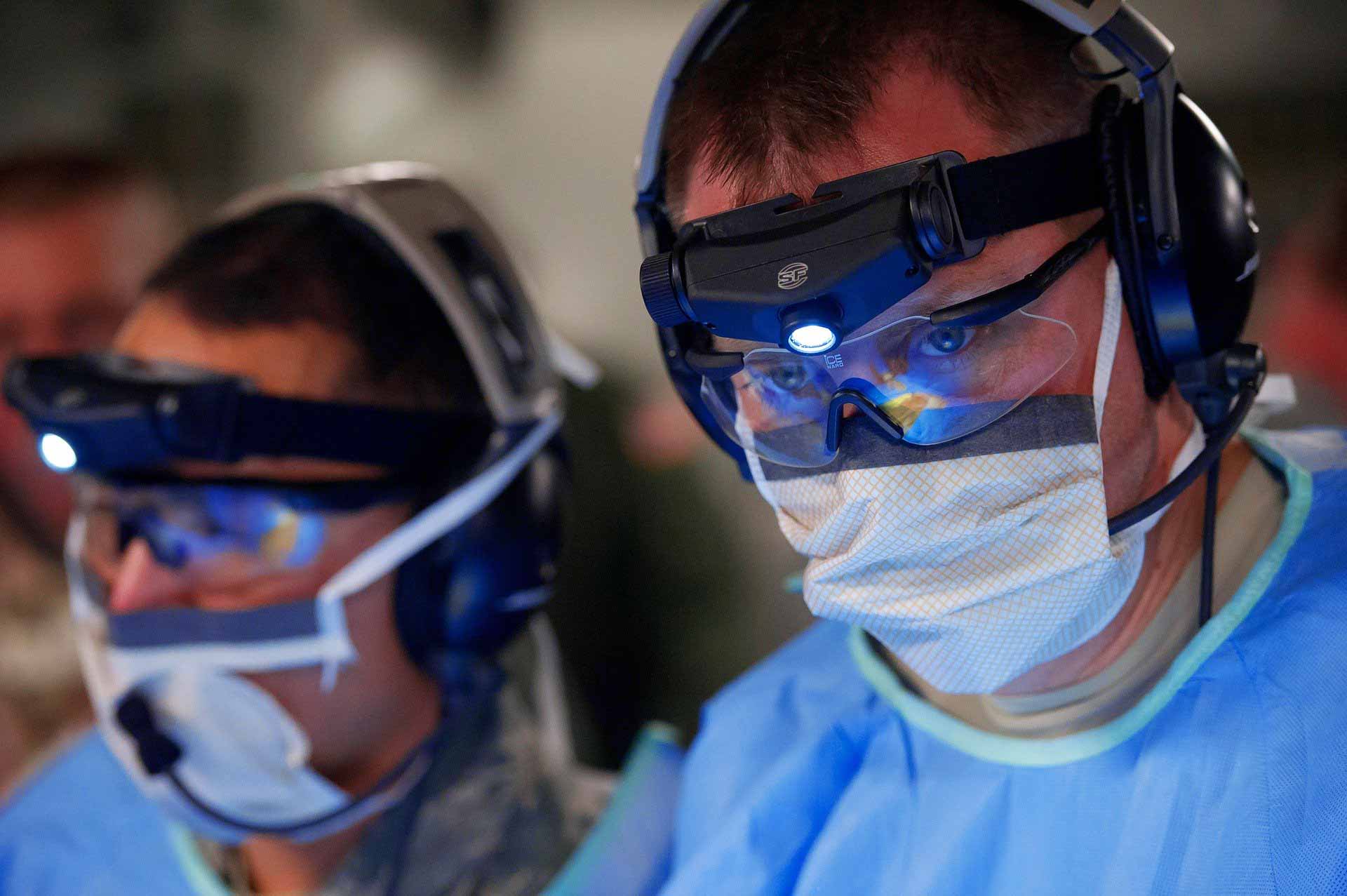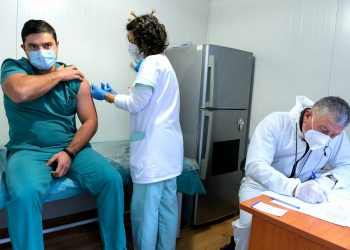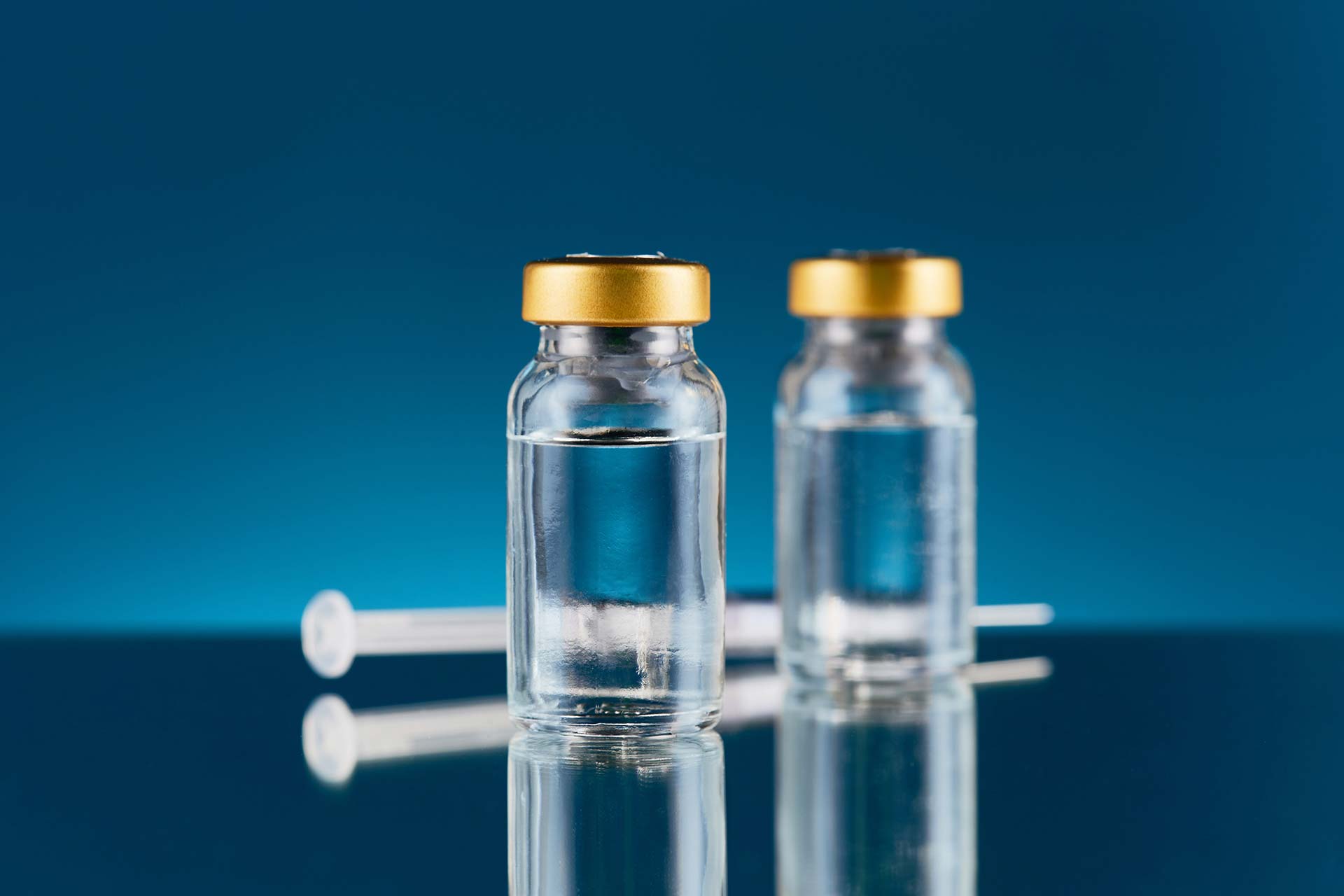European Commission granted a conditional marketing authorisation (CMA) for the Johnson & Johnson COVID‑19 vaccine by Janssen Pharmaceutica NV. This is one of the Janssen Pharmaceutical Companies of Johnson & Johnson, and the fourth COVID-19 vaccine authorised in the EU. This authorisation follows a positive scientific recommendation based on a thorough assessment of the safety, effectiveness and quality of the vaccine by the European Medicines Agency (EMA) and is endorsed by the Member States.
The President of the European Commission, Ursula von der Leyen, said: “The Janssen vaccine is the fourth authorised vaccine of the EU’s portfolio and will help us enhance the vaccination campaign in the second quarter of 2021. It only requires a single dose, which takes us another step closer to achieving our collective goal of vaccinating 70% of the adult population by the end of summer.”
EU debates with Johnson & Johnson, Pfizer and Sanofi to increase COVID-19 vaccine production
Stella Kyriakides, Commissioner for Health and Food Safety, said: “Our portfolio now contains four safe and effective COVID-19 vaccines that we are working tirelessly to deliver to citizens in Europe and beyond as soon as possible. A single dose vaccine can make a difference in the speed of rollout. The entry on the market of the Janssen vaccine ensures that we have access to a total of up to 1.8 billion doses of approved vaccines from different technology platforms – this is key to ensuring access to vaccinations for Europe and our international partners. We will continue to work tirelessly to support vaccine producers and ensure they deliver doses, as agreed in our contracts.”
One dose to adults aged 18 years and older
The Janssen vaccine will be in one dose to adults aged 18 years and older for preventing COVID-19. The vaccine is based on an adenovirus, a harmless virus which delivers the ‘instructions’ from the virus that causes COVID-19. This allows the body’s own cells to make the protein unique to the COVID-19 virus. The person’s immune system recognises that this unique protein should not be in the body and responds by producing natural defences against infection by COVID-19. The adenovirus in the vaccine cannot reproduce and does not cause disease.
On the basis of EMA’s positive opinion, the Commission has verified all the elements supporting the marketing authorisation and consulted Member States before granting the conditional marketing authorisation. The Commission approved the contract with Janssen on 8 October 2020. With the conditional market authorisation, Janssen will be able to deliver 200 million of their single dose COVID-19 vaccine to the EU starting in the second quarter of 2021. The contract allows Member States to purchase an additional 200 million doses. This will add to the total amount of 600 of the vaccine by BioNTech/Pfizer and the 460 million doses of the vaccine by Moderna, as well as the 400 million by AstraZeneca.
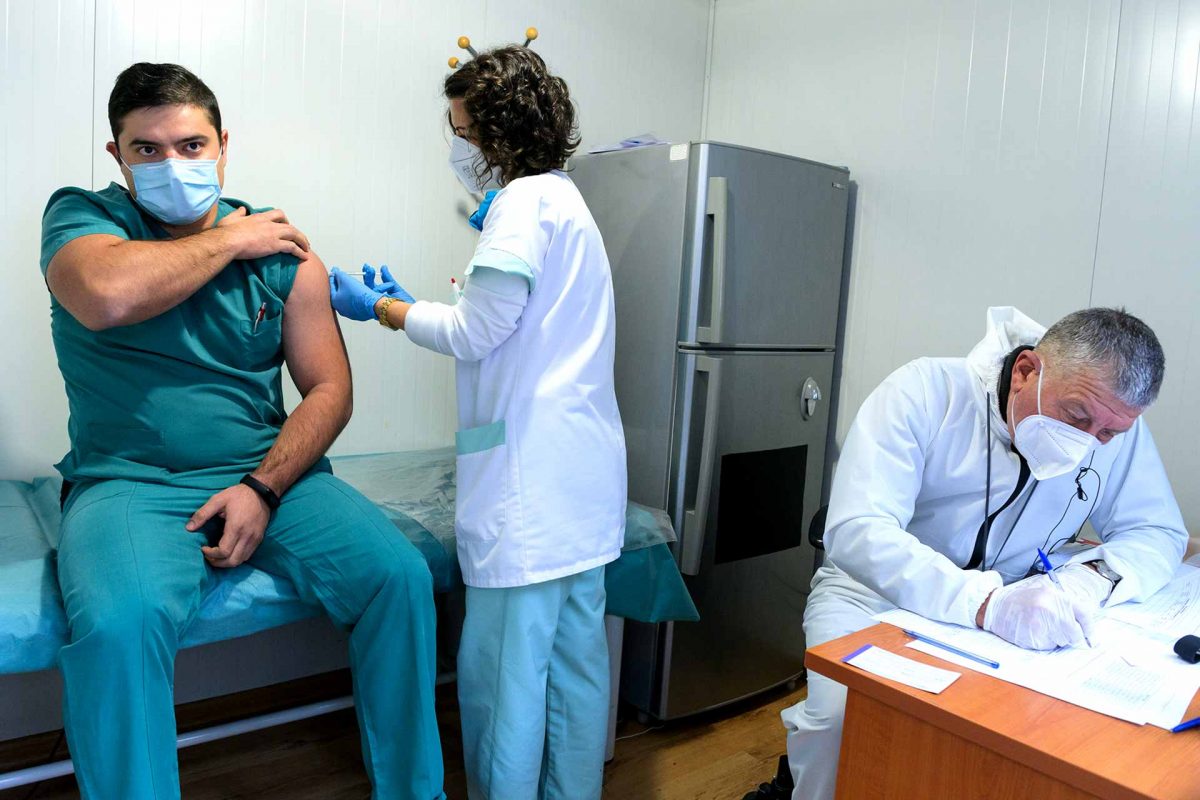
What Is the Johnson & Johnson Vaccine?
The COVID-19 vaccine from Johnson & Johnson uses existing technology that involves a virus called adenovirus, a common cause of respiratory infections. The DNA in the adenovirus is modified so that it produces a key part of the SARS-CoV-2 virus particle to which the body then develops an immune response. The adenovirus that delivers the SARS-CoV-2 DNA particle cannot multiply, so it does not cause infection. Because this system is based on stable DNA molecules, it does not require ultracold storage, making it easier to distribute.
What is Conditional Marketing Authorisation (CMA) in European Union?
A conditional marketing authorisation (CMA) is an authorisation of medicines on the basis of less complete data required for a normal marketing authorisation. Such a CMA may be considered if the benefit of a medicine’s immediate availability to patients clearly outweighs the risk linked to the fact that not all the data are yet available. However, it also ensures that this COVID-19 vaccine meets the EU standards, as for all other vaccines and medicines.
Once a CMA has been granted, companies must provide within certain deadlines further data including from ongoing or new studies to confirm that the benefits continue to outweigh the risks. CMAs are foreseen in the EU legislation specifically for public health emergencies and is considered the most appropriate regulatory mechanism in this pandemic for granting access to all EU citizens and for underpinning mass vaccination campaigns.
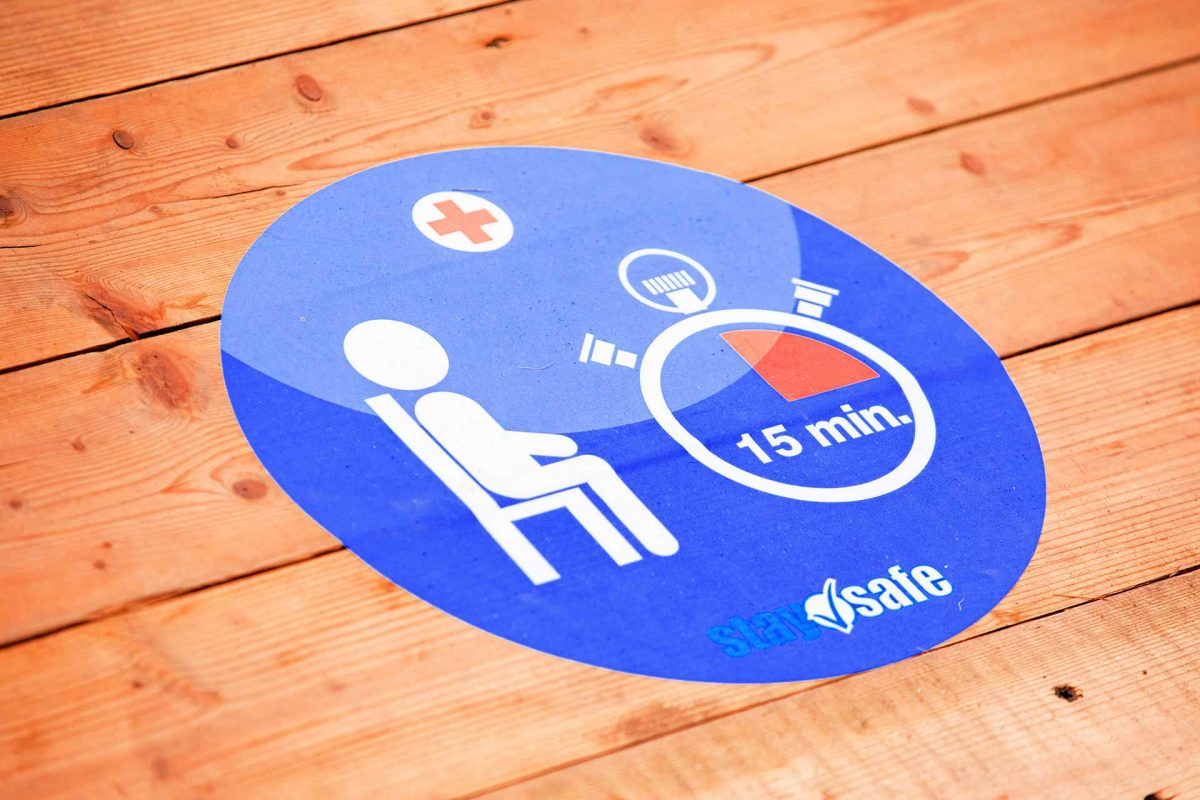
Janssen application for Johnson & Johnson Vaccine CMA
Janssen submitted an application for a CMA for their vaccine to EMA on 16 February 2021. Such a short time for evaluation is only possible because EMA has already reviewed some data during a rolling review. During this phase, EMA assessed quality data and data from laboratory studies which looked at how well the vaccine triggers the production of antibodies and immune cells that target SARS-CoV-2 (the virus that causes COVID-19). The Agency also looked at clinical safety data on the viral vector used in the vaccine. This rolling review and the assessment of the CMA application allowed EMA to quickly conclude on the safety, effectiveness and quality of the vaccine. EMA recommended granting the conditional marketing authorisation as the benefits of the vaccine outweigh its risks.
The European Commission has verified whether all necessary elements – scientific justifications, product information, educational material to healthcare professionals, labelling, obligations to marketing authorisation holders, conditions for use, etc. – were clear and sound. The Commission also consulted the Member States, as they are responsible for the vaccines marketing and the use of the product in their countries. Following the Member States’ endorsement and on the basis of its own analysis, the Commission decided to grant the conditional marketing authorisation.
How Does the Johnson & Johnson Vaccine Differ From Other Available COVID-19 Vaccines?
The Pfizer and Moderna COVID-19 vaccine technology uses genetic material (mRNA) that code for parts of the SARS-CoV-2 virus protein. This mRNA is protected by lipid nanoparticles (fat bubbles) that, when injected, cause a person’s own cells to make pieces of viral particles to which the body develops immunity. Because the genetic material is broken down quickly, it stays in a person’s cells for only a short period of time. For this reason, these vaccines must be kept in very cold environments until they are ready to be given.
Initially, the Johnson & Johnson vaccine was shown to produce antibodies against SARS-CoV-2 in 90% of people who received it after the first dose. The amount of antibodies was greater for those who received 2 doses of the vaccine. Data released by Johnson & Johnson suggest that 1 dose of vaccine was 66% effective in preventing moderate to severe COVID-19 and 100% effective in preventing COVID-19–related hospitalization and death. These data are being reviewed by the US Food and Drug Administration to consider whether to grant an Emergency Use Authorization (EUA) to allow use of this vaccine.
Who should not get vaccinated
- If you have had a severe allergic reaction (anaphylaxis) or an immediate allergic reaction—even if it was not severe—to any ingredient in the J&J/Janssen COVID-19 vaccine (such as polysorbate), you should not get the J&J/Janssen COVID-19 vaccine.
- An allergic reaction is considered severe when a person needs to be treated with epinephrine or EpiPen or if they must go to the hospital. Experts refer to severe allergic reactions as anaphylaxis. Learn about common side effects of COVID-19 vaccines and when to call a doctor.
- An immediate allergic reaction means a reaction within 4 hours of getting vaccinated, including symptoms such as hives, swelling, or wheezing (respiratory distress).
If you aren’t able to get the J&J/Janssen COVID-19 vaccine, you may still be able to get a different type of COVID-19 vaccine.

